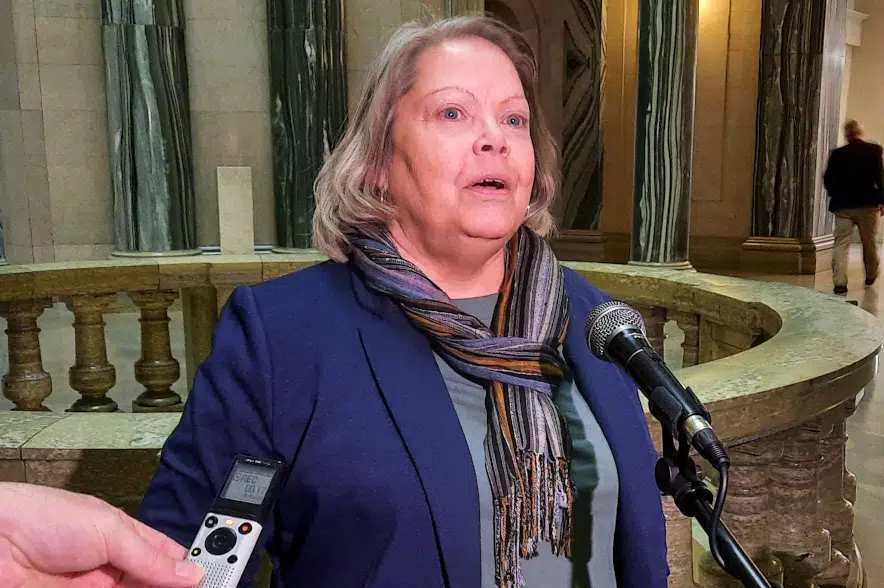Frustration and disappointment were the dominant feelings as union heads shared their thoughts on this year’s Saskatchewan budget.
Tracey Sauer, president of the Saskatchewan Government and General Employees Union (SGEU) , said she’s feeling extremely disappointed in this year’s budget.
“There’s no relief for the people of Saskatchewan,” she said. “There’s no relief for my members.”
Sauer said the budget left out items that could help support government workers, like a cost of living allowance, updates to wages, or additional staff to help alleviate the needs of those working in the social services and health-care sectors.
“We need to be more concerned about our people in this province than catchphrases and slogans,” Sauer said. “We work with the most vulnerable people.”
She said the entire corrections field was ignored by this year’s budget, but noted those workers aren’t the only ones who will feel ignored — or displeased.
“What are we going to do?” Sauer asked. “We’re going to collapse.”
Jannell Hubbard, general vice-president of the Canadian Union of Public Employees (CUPE), said nurses are also on the verge of collapse, working an “unsafe” number of hours to try and keep up with demand for care.
“(These are) people working massive amounts of overtime and then they come to work and talk about how they’re feeling,” Hubbard explained. “And they really describe feeling drunk.”
She said that’s unsafe for them, their co-workers and their patients.
A commitment to federal guidelines to better care for workers and patients is needed, Hubbard said. She also voiced concern over contract workers being used as a stop-gap measure, and said she is unsure whether those workers’ level of education and qualifications match those of current employees.
All of those factors contribute to the difficulty of attracting people to careers in health care in Saskatchewan, Hubbard said.
“I think it’s the workload,” she said. “I think it’s the fact that you hear people can’t get vacation. There’s mandated overtime.”
Hubbard also said there’s a major focus on recruitment from the provincial government, when retention is an issue staring the Ministry of Health in the face.
“People who work in that sector don’t feel respected, because the money is going to recruitment and not to retention,” Hubbard said.
“I want there to be investments. I want there to be recruitment, but I really think they need to work on a focus on retention for the workers we’ve already got.”
Lori Johb, president of the Saskatchewan Federation of Labour, said she thought the budget was disappointing.
“There’s literally nothing in there for working people. We were really hoping to see a little bit of relief for people that are struggling, and there’s literally nothing there for people,” she said.
Johb noted a lack of references to increasing Saskatchewan’s minimum wage or cutting an upcoming SaskPower rate hike, or even relief from high gas prices in the budget.
The minimum wage in Saskatchewan is set to increase by $1 per hour in October, and again in October of 2024, bringing it up to $15 per hour. The minimum wage also increased by $1 per hour in October of 2022.
And while Johb said the government may have spoken with some people working in health care and education, which she acknowledged are important conversations to have, she said she was not among those consulted.
“It’s disappointing on many, many levels,” she said.
Johb said she was hoping to see PST removed from construction projects, but there were no major tax changes included in the budget.
“Now would have been a perfect time to take away that tax, because we are in a position where our province should be growing and moving forward, but there’s really nothing,” Johb said. “They haven’t done anything to help workers in any capacity.”







